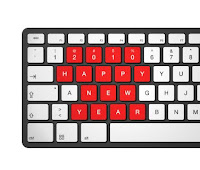Maybe I’m being more reflective that usual because of the new year, or maybe it’s because several people have asked me about our success lately. The question on my mind is this: What is the difference between super-successful grant writers like those at CRR (with funding success of over $100 million in less than 10 years) and those grant writers who struggle for every mini-grant or who spend decades writing and can’t get far passed the $10 million mark? It can’t just be luck. Is there a formula?
Well, yes and no. There is a certain amount of basic skill involved. Good grant writers are, first and foremost, excellent writers. They are also excellent readers. Reading an RFP (and reading between the lines of an RFP) is critical.
Good grant writers know how to follow the instructions, write succinctly, develop appropriate budgets, write good goals and objectives, build a compelling case for a project, write effective evaluation plans, and put together a comprehensive and complete proposal package. All of these skills can be taught and learned, but what separates the good grant writers from really great ones?
It’s about the things you can’t teach.
Great grant writers are extremely creative. They can see connections between data and programs that others miss.
They are highly intuitive. They have a sense for what a funder is really asking for, in spite of what is on the written page.
They are resilient. They handle failure and set-backs as well as success. And trust me on this– if you do a lot of grant writing, you will experience some failure – not as much as those who aren’t as good, but you don’t get to be among the best without taking those failures and learning from them.
They handle stress well. Deadline stress is a particular kind of stress. Every person I have ever interviewed for a job says they handle stress well. Then they get to experience our kind of deadline stress. Some rise to the occasion and do their best work. Others fall apart. Also, it’s one thing being able to handle a single deadline for a single proposal, but it’s another thing entirely to handle the stress of 5 grants due on the same day, followed by another 3 grants due two days after that, and so on. That brings me to the next characteristic of really great grant writers….
They are experts at managing time and multitasking. Writing only one proposal at a time feels like a vacation.
Want to know more abut what makes the difference between good grant writers and the really successful ones (beyond what I have said here)? Visit the CRR online store and take a look at the CD or cassette of 12 Secrets of Successful Grant Writers.
It’s not rocket science, but knowing the secrets can make the difference between being good and being GREAT.
Published by Creative Resources & Research http://grantgoddess.com



